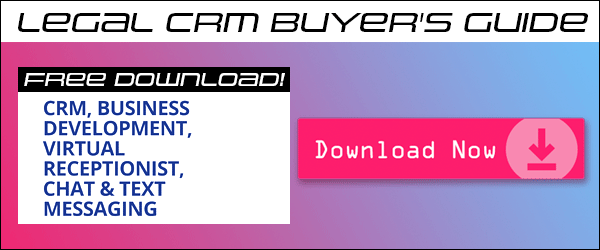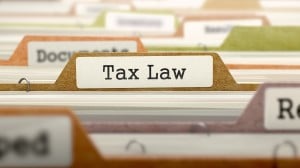(Photo
by
Collection
of
the
Supreme
Court
of
the
United
States
via
Getty
Images)
Oh
boy,
here
we
go
again.
Another
Supreme
Court
ethics
scandal.
But
unlike…
everything
about
Ginni
Thomas,
this
one
leaves
me
decidedly
unconcerned.
Yesterday,
the
New
York
Times
published
a
story
about
the
“ethics
questions”
surrounding
the
work
of
Jane
Sullivan
Roberts,
wife
of
the
Chief
Justice,
John
Roberts.
For
those
that
may
not
be
aware,
Jane
was
once
a
Biglaw
partner
at
Pillsbury
Winthrop
Shaw
Pittman
but
two
years
after
her
husband
was
appointed
to
the
Supreme
Court
she
left
that
role,
saying,
it
was
“awkward
to
be
practicing
law
in
the
firm.”
Like
many
who
no
longer
want
to
use
their
J.D.
to
practice
law,
Jane
Roberts
turned
to
legal
recruiting,
first
at
Major,
Lindsey
&
Africa
then
at
Macrae.
Now
her
work
as
a
recruiter
is
coming
under
fire.
The
Times
got
a
copy
of
a
letter
sent
by
a
former
colleague
of
Jane
Roberts’s,
Kendal
Price,
to
Congress
and
the
Justice
Department
raising
the
flag
that
Jane
Roberts
receives
commissions
from
law
firms,
some
of
which
have
business
before
the
Court.
To
which
I
say,
duh.
Were
people
confused
about
how
recruiting
works?
But
Price
wrote,
“I
do
believe
that
litigants
in
U.S.
courts,
and
especially
the
Supreme
Court,
deserve
to
know
if
their
judges’
households
are
receiving
six-figure
payments
from
the
law
firms.”
Listen,
I’ve
written
extensively
about
the
recusal
disaster-cluster-fuck-o-rama
that
Clarence
Thomas
is
distinctly
not
doing
despite
his
wife’s
advocacy
work
on
behalf
of
issues
destined
to
appear
before
the
Supreme
Court.
It’s
a
repeated
pattern,
with
Ginni’s
post-election
advocacy
making
Clarence’s
votes
on
matters
related
to
the
January
6th
committee
super
suspect.
But
even
before
that
made
headlines,
she
led
a
grassroots
movement
in
support
of
Trump’s
travel
ban,
worked
for right-wing
think
tanks, and
led
efforts
to defeat
the
Affordable
Care
Act.
And
nary
a
recusal
in
sight.
That
is
clearly
bad.
But
that
is
worlds
different
than
what
Jane’s
been
up
to.
Yes,
Jane
Roberts
gets
paid
a
ton
of
money
for
placing
partners
at
Biglaw
firms,
and
some
of
those
firms
also
argue
before
the
Court.
But
that’s
not
advocacy
work.
When
Biglaw
firm
X
pays
the
recruiting
firm
for
Jane’s
work
they’re
not
trying
to
curry
favor
with
her
husband,
they’re
paying
for
the
value
of
that
new
cog
in
their
Biglaw
machine.
There’s
no
access
or
insight
into
the
Court’s
workings
being
given
away
when
Jane
Roberts
places
a
Private
Equity
partner
at
a
firm.
Hell,
she
may
even
have
placed
candidates
at
two
firms
working
on
opposite
sides
of
a
case
before
the
Court.
Sure,
it
might
be
nice,
for
the
sake
of
transparency,
to
have
additional
information
about
the
work
of
the
justices’
spouses.
But
blowing
up
what’s
ultimately
a
nothingburger
of
an
ethics
issue
runs
the
risk
of
undermining
real
ethical
problems,
like
the
aforementioned
Ginni
Thomas.
Also,
Jane
Roberts
has
been
doing
the
same
job
for
15+
years.
So,
why
is
it
all
of
a
sudden
news?
Mr.
Price
and
Mrs.
Roberts
both
had
worked
as
legal
recruiters
for
Major,
Lindsey
&
Africa,
a
global
firm
based
in
Maryland.
According
to
the
letter,
Mr.
Price
was
fired
in
2013
and
sued
the
firm,
as
well
as
Mrs.
Roberts
and
another
executive,
over
his
dismissal.He
lost
the
case,
but
the
litigation
produced
documents
that
he
sent
to
Congress
and
the
Justice
Department,
including
spreadsheets
showing
commissions
attributed
to
Mrs.
Roberts
early
in
her
headhunting
career,
from
2007
to
2014.
Mrs.
Roberts,
according
to
a
2015
deposition
in
the
case,
said
that
a
significant
portion
of
her
practice
was
devoted
to
helping
senior
government
lawyers
land
jobs
at
law
firms
and
that
the
candidates’
names
were
almost
never
disclosed.“I
keep
my
placements
confidential,”
she
said
in
the
deposition.
Ahhhh.
There
it
is.
There
are
some
ethics
absolutists
that
get
the
ick
pretty
much
whenever
a
judicial
spouse
works
in
the
legal
industry
at
all.
An
ethics
opinion
by
Bennett
L.
Gershman,
a
Pace
University
law
professor
and
former
Manhattan
prosecutor,
accompanied
the
letter
and
said
“it
is
plausible
that
the
Chief
Justice’s
spouse
may
have
leveraged
the
‘prestige
of
the
judicial
office’”
to
“raise
their
household
income.”
He
added
that
those
concerns,
coupled
with
what
he
described
as
the
chief
justice’s
lack
of
disclosure
of
potential
conflicts,
“threaten
the
public’s
trust
in
the
federal
judiciary,
and
the
Supreme
Court
itself.”
But
Amanda
Frost,
law
professor
at
the
University
of
Virginia,
has
a
relevant
comment
that
has
a
much
more
realistic
ring
to
it
for
me,
“It
feels
hard
to
imagine
how
this
would
corrupt
his
vote.”
The
Supreme
Court
would
be
better
off
with
clear
ethics
rules
and
recusal
standards,
that
is
true.
But
the
recruiting
work
Jane
Roberts
is
doing
is
simply
not
the
problem.
 Kathryn
Kathryn
Rubino
is
a
Senior
Editor
at
Above
the
Law,
host
of
The
Jabot
podcast,
and
co-host
of
Thinking
Like
A
Lawyer.
AtL
tipsters
are
the
best,
so
please
connect
with
her.
Feel
free
to
email
her
with
any
tips,
questions,
or
comments
and
follow
her
on
Twitter
@Kathryn1 or
Mastodon
@Kathryn1@mastodon.social.







 Chris
Chris
 Jordan
Jordan









